25 Year All Stars: Meet Abraham
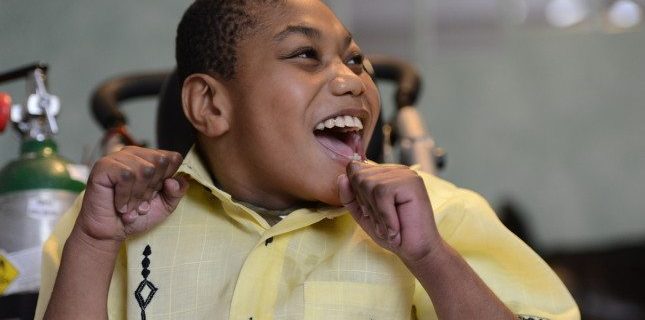
In 2015, PHS is excited to be celebrating 25 years of bringing patients home to receive care, where they can be with their families and grow in a comfortable environment. To celebrate the amazing journeys our patients have been on, we’re going to be highlighting their stories each month on the blog through the 25 Year All-Star series.
Meet Abraham, and the first thing you’ll notice is his smile that lights up the room. It’s obvious that this energetic 11-year-old (described as a people person by his mom, Margaret) loves to be around his nurses, family members and friends – and although he doesn’t talk, his expressions speak volumes.
An unknown diagnosis
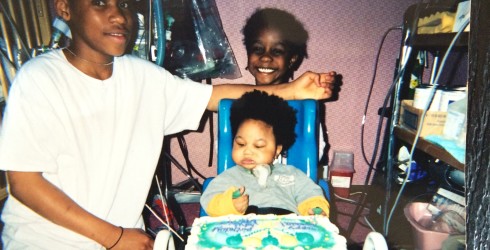 Abraham – or Jehu, as his family calls him – was born a healthy baby until at two and a half months old, he began to experience postnasal drip which soon lead to him having difficulty breathing. He soon went into respiratory arrest (thankfully when he was already at the hospital) a month later, and when he stopped breathing for a period of time, hospital staff suggested Margaret talk to a pastor. She knew she needed to exercise her faith and hope for a miracle.
Abraham – or Jehu, as his family calls him – was born a healthy baby until at two and a half months old, he began to experience postnasal drip which soon lead to him having difficulty breathing. He soon went into respiratory arrest (thankfully when he was already at the hospital) a month later, and when he stopped breathing for a period of time, hospital staff suggested Margaret talk to a pastor. She knew she needed to exercise her faith and hope for a miracle.
“I believe that miracles happen, and I wanted to bring the boy I brought to the hospital home with me,” commented Margaret.
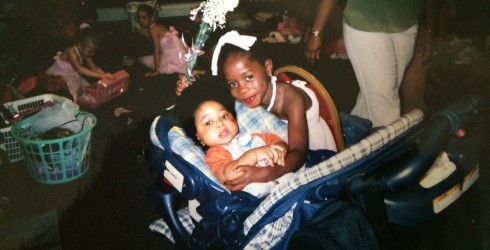 When the doctors were able to resuscitate him, Abraham was taken to the Children’s Hospital where he received a gastric tube and was put on a vent. At that point, doctors began trying to determine the cause of his respiratory arrest, but couldn’t find a diagnosis.
When the doctors were able to resuscitate him, Abraham was taken to the Children’s Hospital where he received a gastric tube and was put on a vent. At that point, doctors began trying to determine the cause of his respiratory arrest, but couldn’t find a diagnosis.
“My sister, who is in the healthcare field in California, saying to me one day, ‘whether you know what’s going on or not, you need to do what’s best for him – even if that means a trach to help him breathe,” remembered Margaret.
The following month Abraham had a trach and GJ-tube put in, and Margaret began to realize just what a huge blessing having access to this life sustaining equipment really was.
Making cultural adjustments
One of the biggest adjustments Abraham’s family made as they learned to care for him was the cultural educational process of what Margaret and others in her community were used to. Having come to the United States from Liberia due to the war, life sustaining equipment and the ability to manage this level of complexity was a foreign concept.
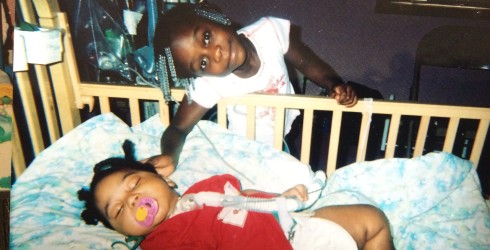 “In Liberia, and many African countries, you don’t see kids with disabilities given opportunity,” mentioned Margaret. “It’s kind of a taboo, and there just isn’t the technology there to take care of really complex kids.”
“In Liberia, and many African countries, you don’t see kids with disabilities given opportunity,” mentioned Margaret. “It’s kind of a taboo, and there just isn’t the technology there to take care of really complex kids.”
Here, Margaret is grateful that Abraham is able to go to school and be a normal kid, bringing blessings to her life and the lives of many others. She also recognizes what an opportunity for learning and growth it is that a community who may not otherwise know what it means to have a special needs child can come over and spend time with Abraham, learn that companies like PHS are able to help him live a normal life, and recognize that he is a normal kid.
Care beyond respiratory
PHS respiratory therapists have been providing care for Abraham since 2004 when he came home from the hospital. But Margaret also remembers when PHS social work was there to help her through tough times when Abraham was young.
“I was going through personal family issues, and at that time was concerned about losing my home,” remembered Margaret. “The social worker at PHS was so supportive of me and served as an advocate for my situation. Thanks to her support, our family was able to get into a better place – a place where Abraham could receive the best care.”
PHS has also been there as Abraham got older and started going to school. By coordinating equipment, supplies, and nursing with the school, Margaret was able to have confidence that staff were trained to take care of his needs while he had the opportunity to receive an education and socialize with peers.
“What I love the most, is that continuity of care,” commented Margaret. “With one specific respiratory therapist being assigned to a patient, they know the child, follow how they’re doing, and know their history. It is so important, and makes such a difference. It’s important, as a parent, to know there’s an agency out there working for our kids who are willing to listen and provide that level of care.”
Nothing is impossible
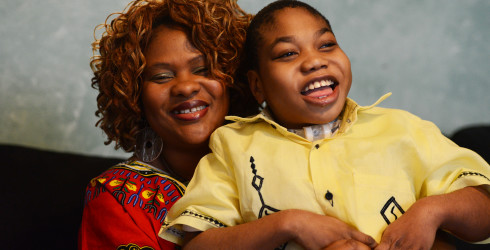 Abraham’s greatest accomplishment?
Abraham’s greatest accomplishment?
“That he’s alive,” smiled Margaret. “He’s at home. At first, the doctors said he wouldn’t even live. Then that he wasn’t going to live that long.”
But at 11 years old, Abraham is going to school, crawling around, sitting up, walking with assistance, using a Passy-Muir valve, and enjoying life. In the future, Margaret hopes he will walk and talk by himself – knowing that miracles have happened in the past, and nothing is impossible.
Originally published: May 6, 2015

